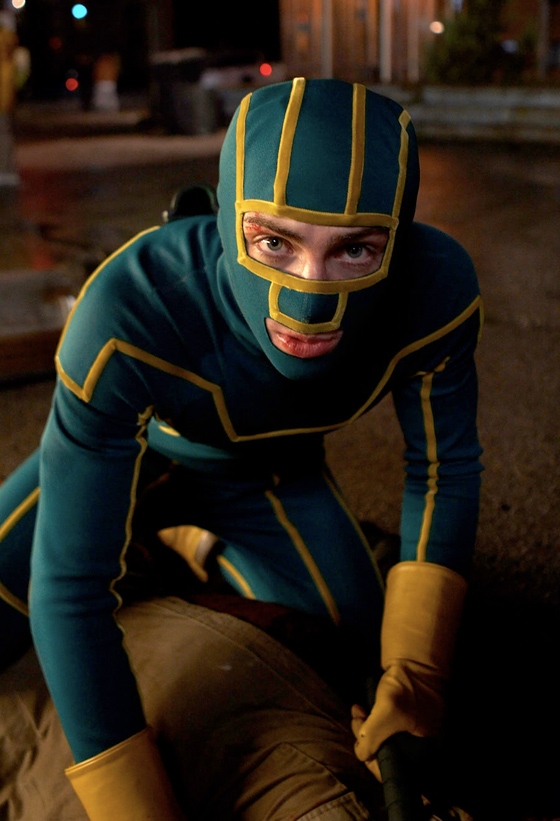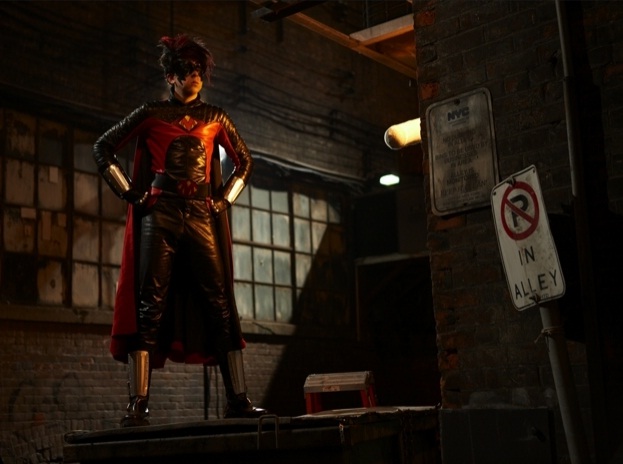
This year is arguably the biggest for superhero cinema since the inception of the genre. Not only did we finally get The Avengers, the film for which nearly the entirety of Marvel’s four-year film slate was a precursor, but we’re also getting the epic conclusion to Christopher Nolan’s Batman trilogy with The Dark Knight Rises.
Sandwiched between these two events, Marvel has rebooted a character that served as one of its first big-screen success stories with Marc Webb’s The Amazing Spider-Man. More so than in recent years, it is impossible to go to the theater, watch TV, or buy a Slurpee without running headlong into a superhero or two.
They’re all the perfect lead in to San Diego Comic-Con, a convention that began life as a celebration of comic books, the origins of these heroes, that has morphed into a giant Hollywood trade show. Given that superhero films are now such an enormous industry, they are doubly promoted under this new focus.
This cash cow of an industry began branching out a few years ago. It’s not just the well-known heroes, the pop culture mainstays, that are being transported from the colorful page to the silver screen; independent and original properties have similarly found their way to the multiplexes, many after a quick pit stop in San Diego.
One such property was Mark Millar’s Kick-Ass, which, after being featured at Comic-Con, hit theaters in April of 2010 (but can now be found on Netflix’s Watch Instantly).
So why did The Avengers make over one billion dollars and Kick-Ass squeaked by with a gross only $18 million beyond its budget? Obviously, one deals with vastly more recognizable characters and can enjoy the benefit of a leviathan marketing machine.
But why doesn’t the average film-goer, one who is not particularly versed in comics, beat the drum for Kick-Ass and celebrate it? I fear we may be dealing with one of cinema’s greatest villains here: expectation. The antagonist of many clever, unique films is the disparity between what’s on the screen and what the audience is expecting. The unfortunate position for Kick-Ass is that it resides in a genre flush with very specific expectations.
Much of the comic book film fare in existence today relies upon its action scenes and otherwise popcorn-inhaling, crowd-pleasing material. Kick-Ass, while featuring a few memorable fight sequences, is far more a spoof, a commentary of superhero movies, than it is the archetypal superhero movie.
It dissects the specific elements of the superhero narrative and shines a light on those things that are actually incredibly complex and difficult that most of these films treat as foregone conclusions. For example, why is it that so many superheroes fall so naturally into crime fighting despite not ever having operated within any law enforcement capacity before obtaining their superpowers? One of the most hilarious scenes in this regard is the one wherein Dave is casing the neighborhood with flyers, trying to find a lost cat.
These moments humanize our hero in a way few other comic book movies even attempt, but at the expense of thrills. Sure, it’s more exciting to watch Batman dart through a shipyard, snatching up criminals in the night with ease despite it being his first outing, but that’s not the tone Kick-Ass is trying to strike, regardless of what its title may seem to espouse.
The other element of Kick-Ass that runs counter to the traditional superhero film mold is its rating. Kick-Ass is an R-rated, studio superhero film; a phrase you do not hear on a regular basis. Even at its absolute darkest, the most Nolan’s Batman franchise could muster was a PG-13 rating… and that’s a story about a grown man choosing to be a hero.
Kick-Ass is about a high school kid admirably out to make his world a better place by using his gifts to defend truth and justice. For his efforts, he gets beaten half to death in brutal, explicit detail. Meanwhile, his surrogate hero mentor is set on fire and dies next to him while a young girl shoots people in the head.

This type of severe violence, simultaneously toward and at the hands of children, is an extreme diversion from the content of the standard superhero film. Audiences expect a certain amount of combat in these movies, but they are often comprised of fantasy battle with the damage concealed by latex or Iron Man’s metal suit.
The consequences in Kick-Ass are strikingly apparent and serve as a compelling argument against heroism; a rather pessimistic view of its own subject matter. This creates a mood and stark imagery that opposes why most people go see these films in the first place.
Of course, there are those who would argue that Kick-Ass is simply not a quality film, and, film being as subjective as any other art form, this is a legitimate stance.
However, it is entirely within the realm of possibility that what kept the movie from latching on with a large contingent of movie-goers was that it didn’t play by the rules, and was sold as something it was not. A movie about a superhero, perhaps. But a “superhero movie?” Not quite.
[Image Credit: Lionsgate]
More:
Comic-Con 2012: The Web’s Most Anticipated SDCC Panels
‘The Dark Knight Rises’ Notes Stoke Possible John Blake/Batman Connection


